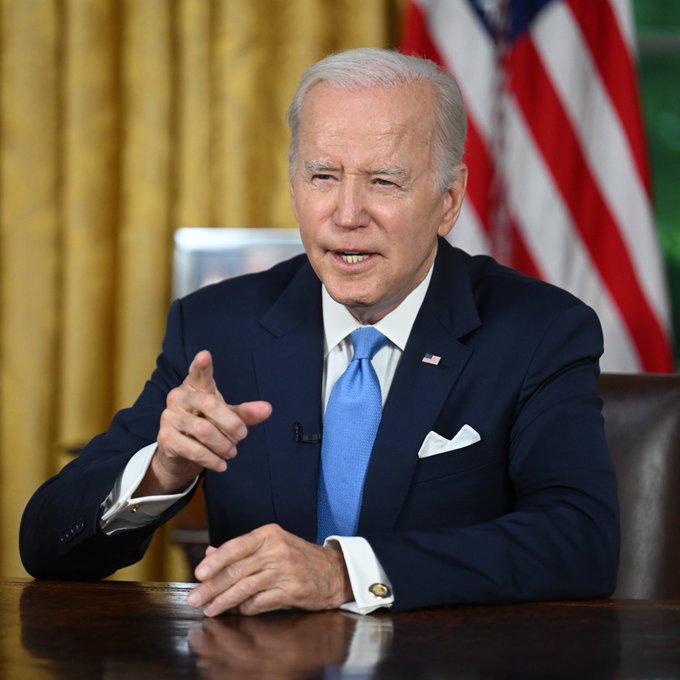
Prime Minister Benjamin Netanyahu seeks to bring his controversial proposal to curb the power of judges to a vote in the Knesset…reports Asian Lite News
President Joe Biden urged Israel in a statement Sunday not to rush increasingly “divisive” judicial reforms, given the other challenges facing the US ally.
In a statement first published by news site Axios by the White House, Biden said, “It doesn’t make sense for Israeli leaders to rush this – the focus should be on pulling people together and finding consensus.”
“From the perspective of Israel’s friends in the United States, it looks like the current judicial reform proposal is becoming more divisive, not less,” he said.
Prime Minister Benjamin Netanyahu seeks to bring his controversial proposal to curb the power of judges to a vote in the Knesset as soon as Monday.
The proposal triggered dueling protests over the weekend between supporters of the proposal and those who fear it will undermine Israel’s democracy.
The driving force behind the reforms, Justice Minister Yariv Levin, said the bill being put to lawmakers on Monday had undergone changes to accommodate critics, but added that the coalition was still open to “understandings.”
Netanyahu faced other challenges over the weekend, not the least of which was a trip to the hospital to have a pacemaker fitted after he was hospitalized for a reported spell of dizziness.

His government, which includes far-right and ultra-Orthodox Jewish allies, argues that the proposed reforms will prevent overreach by unelected judges and ensure a better balance of power.
Opponents accuse the 73-year-old Netanyahu, who has been fighting corruption charges in court, of a conflict of interest and some protesters have labelled him the “crime minister.”
Some 20 legislators have lined up to speak against the bill, which would limit Supreme Court judges’ ability to strike down government decisions they deem “unreasonable.”
If approved, the “reasonability” clause would be the first major component of the overhaul to become law. Other proposed changes include allowing the government a greater say in the appointment of judges.
Meanwhile, protest against judicial reform in Israel swelled after agitators formed a human chain from Western Wall to Knesset (Parliament), where debate is underway over the contentious bill and the rightist coalition government prepares to pass the first piece of judicial reform legislation.
The protests swept major cities across the country. The debate, which began in Sunday morning, will continue for 26 hours and likely to conclude on Monday.
During the debate, referring to the widespread judicial reform protests taking place, Constitution, Law and Justice Committee Chair Simcha Rothman said: “The current situation is not democracy, and not the rule of law,” Jerusalem Post reported.
Opposition leader MK Yair Lapid said: “We didn’t march to declare war, but to prevent one. To tell the government, if you still have any sense of fairness, stop this.”
The government is arguing that the bill will enhance democracy, while the opposition termed it to be slide toward authoritarianism.
The contentious bill is aimed at canceling some of the Supreme Court’s powers, with the aim of completing the legislation before the Knesset adjourns on July 30 for its summer recess.
The planned judicial overhaul has thrown Israeli society into turmoil, with many expressing concerns and frustration about the future of Israel’s judiciary under Prime Minister Benjamin Netanyahu’s leadership.
The grassroots movement has staged some of the largest demonstrations ever seen in Israel since the 1980s, with weekly protests occurring for 28 consecutive weeks following the announcement of the overhaul plan by the ruling coalition in January.
Netanyahu, Israel’s longest-serving leader, returned to office in December last year, leading a rightist government coalition consisting of ultranationalist and ultra-religious parties.
He is facing a criminal trial over corruption charges in three separate cases.
Efforts to find a last-ditch compromise were underway, with Israel’s President Isaac Herzog shuttling between the sides, including a meeting at the hospital where Netanyahu was treated, to find an agreement over the way forward. But it was unclear whether those would result in a compromise ahead of the vote, expected Monday afternoon.
Early Monday, protesters banging on drums and blowing horns blocked a road leading to the Knesset, and police used water cannons to push them back. The protest movement said one of its leaders was arrested.
“The state of Israel stands before destruction and ruin that is being brought upon it by a gang of extremists and kooks. We must go up to Jerusalem today!” one branch of the protest movement called out to demonstrators on social media.
Israeli media reported that a consortium of businesses announced late Sunday that some of their members wouldn’t open on Monday in protest at the government’s plans, leading to big mall chains and some gas stations sealing their doors.
The dramatic events were being watched closely in Washington, from where the Biden administration has frequently spoken out against Netanyahu’s government and its overhaul plan. In a statement to the news site Axios late Sunday, Biden warned against pushing ahead with the legal changes that were sparking so much division.
ALSO READ: US semiconductor industry presses Biden to refrain from China curbs


